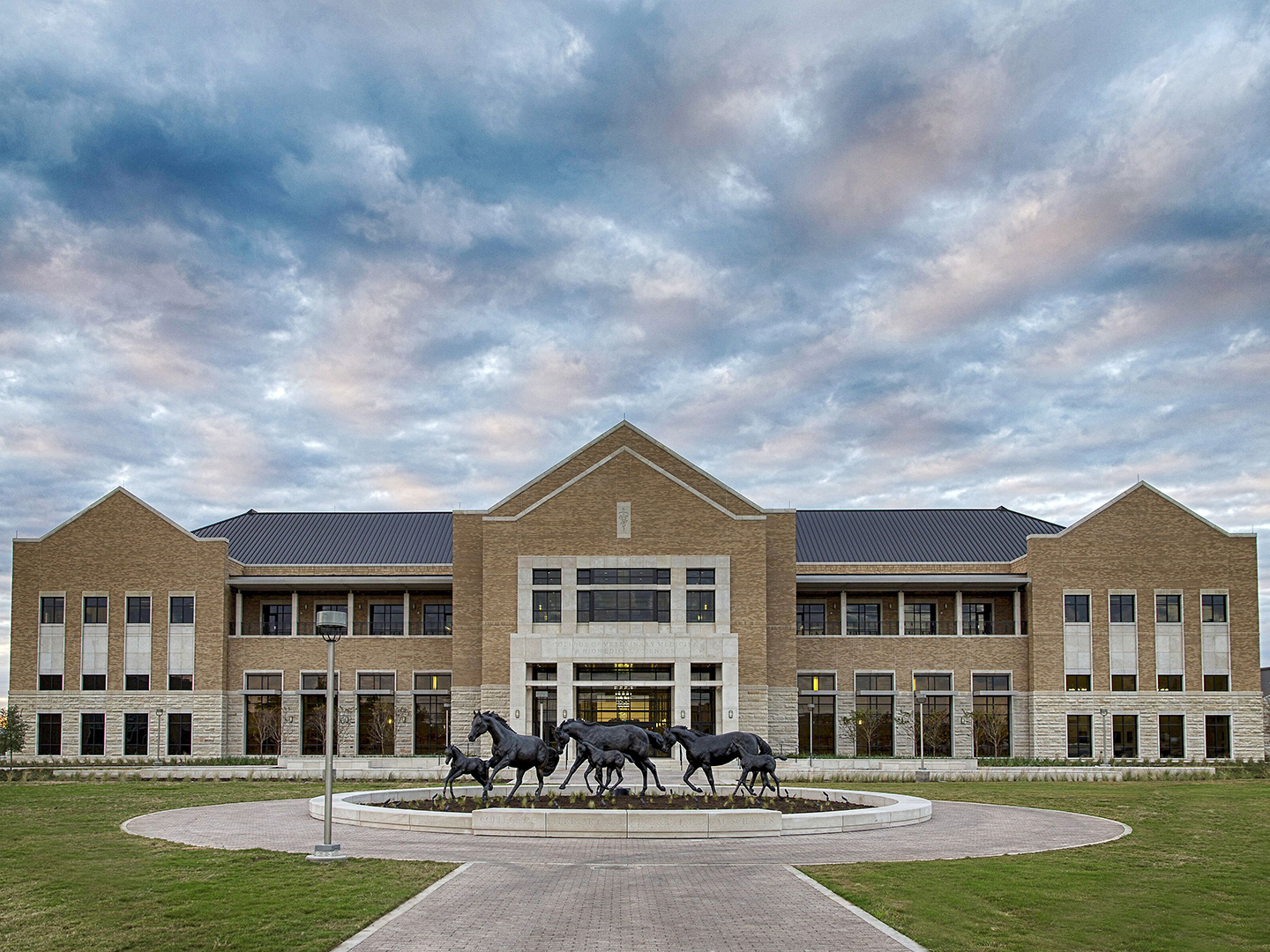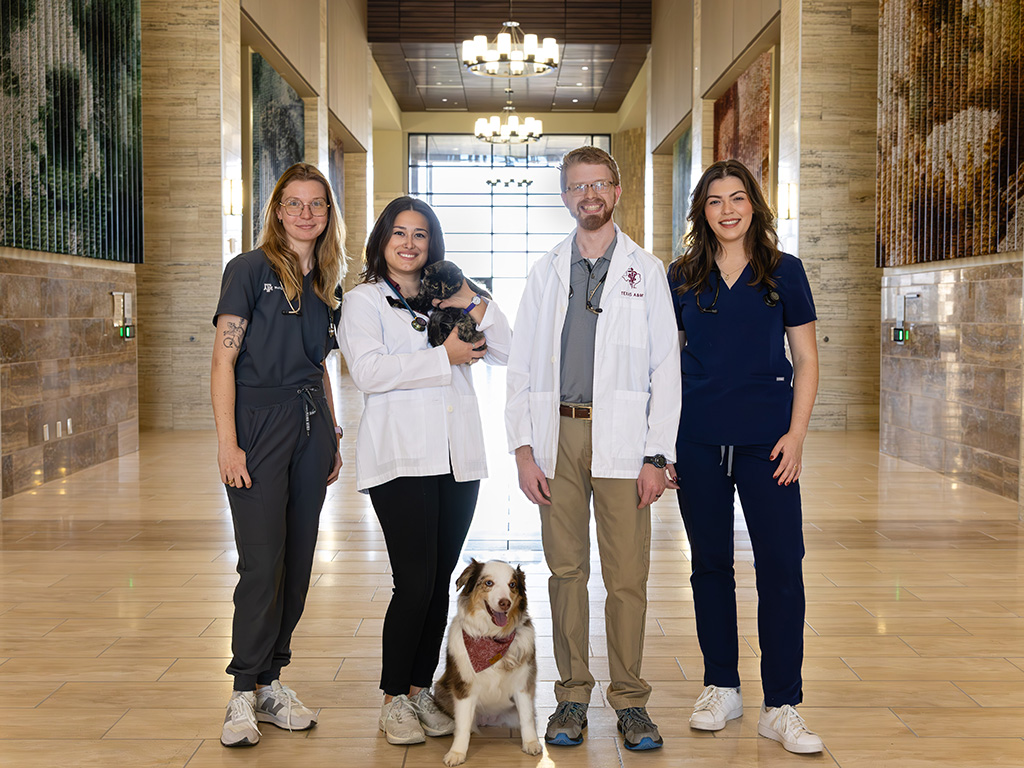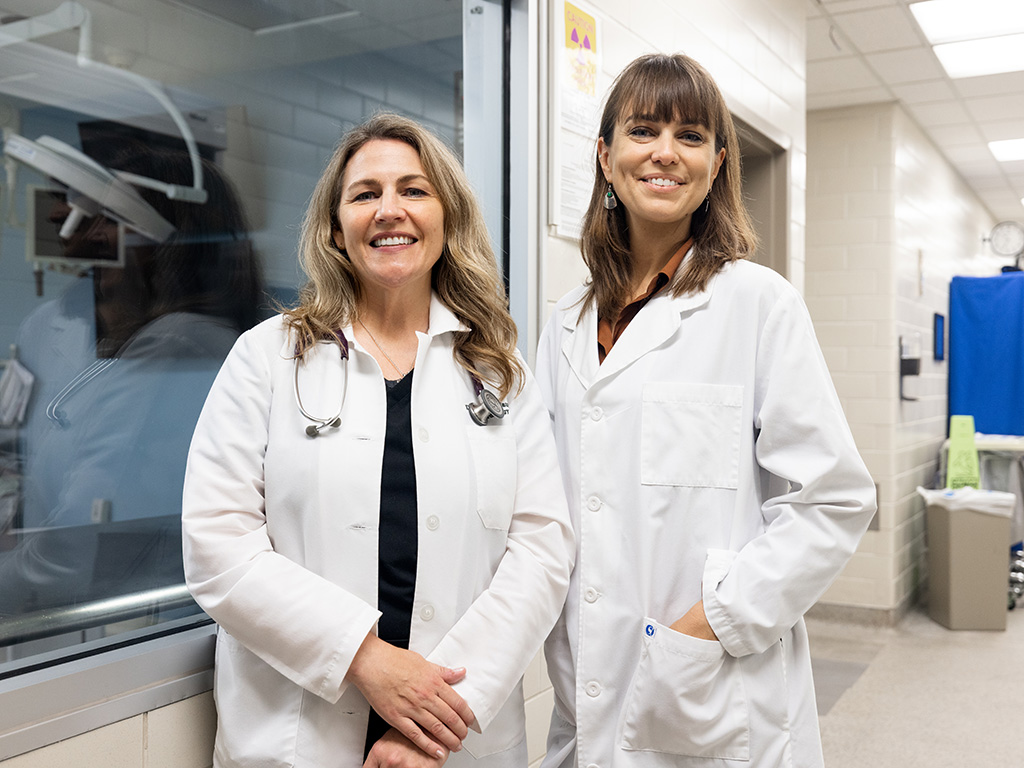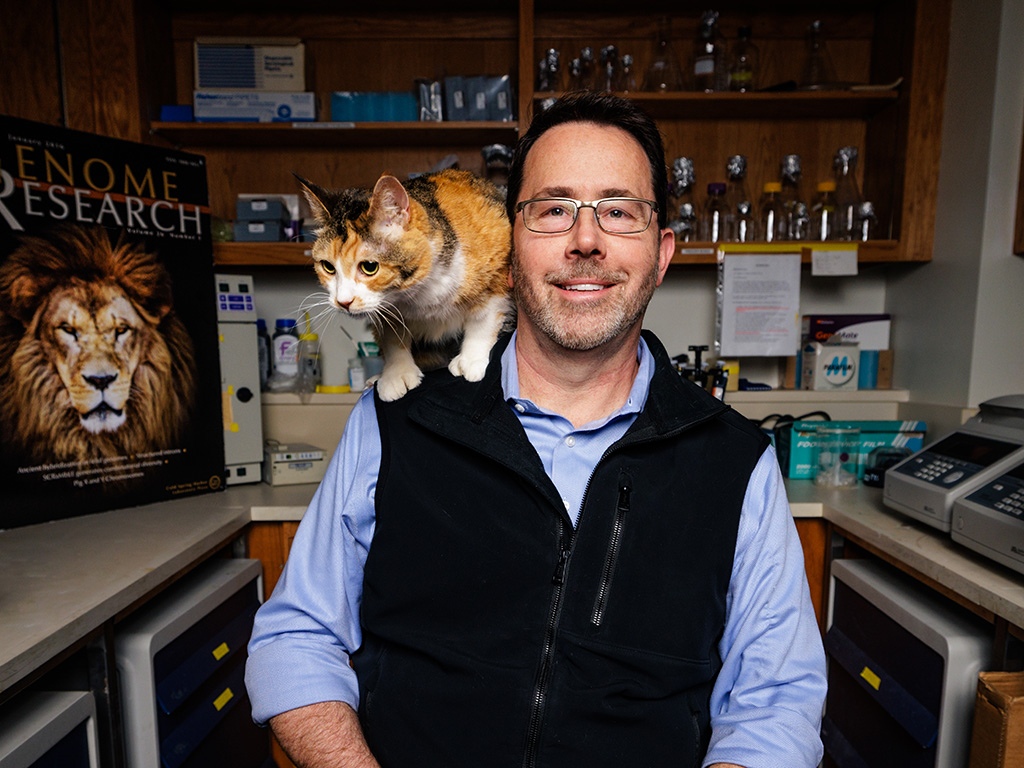Budke Named Department Head Of Veterinary Integrative Biosciences
Dr. Christine Budke has been named the head of the Department of Veterinary Integrative Biosciences (VIBS) at the Texas A&M College of Veterinary Medicine & Biomedical Sciences (VMBS). Budke, a VIBS professor, has served as the interim VIBS department head since 2024. “Dr. Budke represents the Department of Veterinary Integrative Biosciences with distinction,” said Dr. […]
Your Smartwatch Might Know You’re Sick Before You Do — And It Might Help Stop Pandemics
Smartwatch features that measure heart rates, oxygen levels, fitness levels, and sleep quality have been marketed as valuable tools for people who are eager to monitor their health. But what if these features could do more than detect potential health issues — what if they could prevent potential health disasters such as pandemics? Recent studies […]
VMBS Professor Receives Top Research Article Award For Study Of Swine Reproduction
A research publication on swine reproduction led by Texas A&M University professor Dr. Gregory Johnson has been selected as the 2024 Top Research Article by the journal Biology of Reproduction, the official publication of the Society for the Study of Reproduction (SSR). Johnson, a professor in the College of Veterinary Medicine & Biomedical Sciences’ (VMBS) […]
Texas A&M Celebrates Its First Cohort Of Dual Veterinary Medicine, Public Health & Epidemiology Graduates
The Texas A&M College of Veterinary Medicine & Biomedical Sciences (VMBS) celebrated the graduation of its inaugural cohort of the Master of Science in Veterinary Public Health & Epidemiology (VPHE) and Doctor of Veterinary Medicine (DVM) Combination Degree Program during the May 2025 commencement season. As VPHE-DVM graduates, the cohort of four participated in two […]
Research Collaboration Takes ‘One Health’ Approach To Study Chagas Disease Exposure, Treatment Effectiveness
Supported by almost $4 million in new funding, researchers in the Texas A&M College of Veterinary Medicine & Biomedical Sciences and University of Georgia are working to develop interventions that will impact both canine and human health. A team of researchers at Texas A&M University and the University of Georgia (UGA) has received more than […]
VMBS Professors Named EDGES Fellows For High-Impact Contributions
Drs. Sarah Hamer and Jan Suchodolski, faculty members at the Texas A&M College of Veterinary Medicine & Biomedical Sciences (VMBS), are among 17 individuals across the university who have been named 2025 Chancellor Enhancing Development and Generating Excellence in Scholarship (EDGES) Fellows by The Texas A&M University System. Launched in 2019, EDGES Fellowships were developed […]
Texas A&M Researcher Receives Prestigious Award From Finnish Academic Society
Dr. Leif Andersson, a professor in the Texas A&M College of Veterinary Medicine & Biomedical Sciences’ (VMBS) Department of Veterinary Integrative Biosciences, has been awarded the Finnish Society of Sciences and Letters’ Grand Prize for his outstanding contribution to genome biology of domestic animals and natural animal populations. At the society’s annual celebration, Andersson, who […]
Texas A&M Researcher William Murphy Named 2025 SEC Professor Of The Year
Murphy, a National Academy of Sciences member and University System Regents Professor, is Texas A&M’s third recipient of the SEC’s highest faculty honor. Dr. William Murphy, a researcher at the Texas A&M College of Veterinary Medicine and Biomedical Sciences (VMBS), has been named the 2025 Southeastern Conference (SEC) Professor of the Year. Murphy is a […]
Texas A&M Researcher Charts A New Direction In Biology, Quantum Computing
Texas A&M researchers are using new computing technology to predict gene expression, which may be the key to targeted solutions for health issues like cancer and genetic diseases. When most people think of relationships in biology, they probably think of big-picture, macro-level relationships such as the food chain or symbiotic species that we can observe […]
Discovering New Interests: BIMS Student Embraces Legen-dairy Research Opportunities
Thanks to opportunities through the BIMS program, undergraduates are being introduced to new career paths. Benjamin Lamp, a senior biomedical sciences major at Texas A&M University, has discovered a new passion and career goal thanks to undergraduate research opportunities at the College of Veterinary Medicine & Biomedical Sciences (VMBS). Lamp, a Plano native, was first […]











